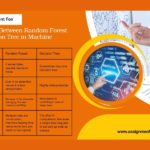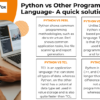Melbourne is one of the best cities in Australia. It is well-known for its food. Melbourne has multiple restaurants and cafes which provides delicious food from all over the globe. Melbourne is also known as the “food capital” of Australia. It has many universities and colleges which helps provide domestic and international students with a knowledge of agricultural and food science through various courses. Studying abroad will give the students an interesting experience and practical knowledge about agriculture and food.
Why do international students study agriculture and food processing courses in Melbourne?
As introduced earlier, Melbourne is a city with a diverse culture. It is also rich in food. According to a survey, more than 50% of international students in this city are studying agriculture and food technology courses at Melbourne’s universities. The primary reason as to why international students are studing agricultural courses in Melbourne is that they are willing to learn new skills. These skills can be later on used in their home country or state after finishing their courses at the universities in Melbourne.
What do you mean by Agricultural Science?
Agricultural science deals with food and fiber production. Agricultural science also involves various technologies which includes soil cultivation, crop cultivation and harvesting. It also includes processing plant and animal products for human consumption.
The scientific approach in agricultural courses was first introduced by Justus von Liebig of Darmstadt, Germany, in 1840. One of his most famous works, “Die organische Chemie in ihrer Anwendung auf Agrikultur, Chemie und Physiologie,” helped in launching the systematic development of the agricultural sciences.
Overview of the course – Course structure
Bachelor in Agriculture Science
Bachelor of Agricultural Science Course at multiple universities of Melbourne, Australia, is a three-year undergraduate program is specifically designed to offer both domestic and international students a strong foundation in agricultural science, agribusiness, and environmental management.
The course is at least three years long, and the students must study full-time at the universities in Melbourne.
Core subjects
Year 1:
- Foundations of Agricultural Science
- Biology of Plants and Animals
- Chemistry for Agriculture and Environment
- Introduction to Agricultural Systems
Year 2:
- Soil and Water Resources
- Plant Production and Health
- Animal Production Systems
- Agricultural Economics and Agribusiness
Year 3:
- Integrated Agricultural Systems
- Sustainable Agricultural Practices
- Advanced Agribusiness Management
- Capstone Research Project
Elective subjects
- Agricultural Biotechnology
- Crop and Pasture Science
- Animal Nutrition and Physiology
- Agricultural Extension and Communication
- Environmental Impact Assessment
- Precision Agriculture
Core subjects in Masters in Agricultural Science
- Agricultural Production Systems
- Advanced Agribusiness
- Research Methods in Agriculture
- Sustainable Land Management
Elective subjects
- Advanced Plant Breeding
- Animal Nutrition and Feed Technology
- Precision Agriculture
- Agricultural Biotechnology
- Environmental Impact Assessment
Practical experience
- Field trips: The universities in Melbourne often arranges for a visit to multiple farms and various agricultural businesses so that the students can observe and learn about real-world experiences.
- Laboratory work: The students must conduct multiple experiments to gain practical experience and skills in modern laboratories using the latest technology.
- Industry placements: There are multiple opportunities for students in internships and work placements, which will provide them with valuable industry experience.
Career paths
- Agribusiness Manager
- Agricultural Consultant
- Farm Manager
- Crop Scientist
- Animal Scientist
- Environmental Officer
- Food Safety and Quality Manager
- Research Scientist
- Policy Advisor
Food Science
Food science is a multidisciplinary field which mainly focuses on solving real-world problems around food production. Modern consumers always want safe and nutritious food that is easily available. Food scientists will play a huge role in helping farmers, and multiple other businesses in meeting those demands.
Overview of the course
The Food Science course provided by the different universities in Melbourne, Australia, will help the students in acquiring various scientific knowledge and technical skills which are needed to address current and emerging problems and challenges in the food industry. This multidisciplinary program combines multiple biology, and engineering principles in order to improve food quality, safety, and nutrition.
Core subjects
Bachelor in Food Science
- Food Chemistry
- Food Microbiology
- Food Processing and Engineering
- Food Safety and Quality Assurance
- Nutrition and Health
- Food Analysis
- Sensory Evaluation of Food
- Food Product Development
Masters in Food Science
- Advanced Food Chemistry
- Advanced Food Microbiology
- Food Biotechnology
- Food Safety and Risk Assessment
- Food Processing Technologies
- Functional Foods and Nutraceuticals
- Research Methods in Food Science
- Food Policy and Regulation
Practical experience
- Laboratory work: The students will get an opportunity to gain hands-on experience in food science laboratories by conducting various experiments and analyses.
- Industry placement: There will be multiple opportunities for internships and work placements in the food industry. It will help the students by providing various practical experiences and industry insights.
- Capstone projects: Some real-world projects combine knowledge and skills from multiple subjects to solve industry-related problems.
Challenges faced by students in completing assignments
Complex and Interdisciplinary Subject Matter
- Diverse Topics: The agricultural and food science courses cover a variety of topics, which include plant and soil science, agribusiness, microbiology, and biotechnology. The students can find these diverse topics and subjects overwhelming.
- Integration of Knowledge: There will be some instances where the students might have to combine various knowledge from different areas to solve complex problems. These can be challenging for those students who are stronger in some places than others.
Scientific and Technical Rigour
- Advanced Concepts: Various subjects, such as microbiology and biotechnology, may involve advanced scientific concepts that require students to have a deep understanding of and critical thinking skills.
- Laboratory Skills: The practical assignments for the course will involve multiple laboratory tasks, which will require adherence to strict protocols. To develop these skills, the students face different challenges.
Practical and Field Work
- Hands-On Experience: The agricultural and food sciences courses often include practical or Fieldwork assignments. It involves various experiments and data collection, which can be challenging for the students.
- Environmental Factors: Various environmental factors can affect Fieldwork in agriculture courses. These factors can be unpredictable and affect the completion of assignments on time.
Research and Data Analysis
- Research Projects: Some students will be required to undertake various research projects involving experiments, data collection, and analysis, as mentioned above. Managing these experiments and data collection will be challenging for the students.
- Access to Resources: The students might need help gathering relevant research material. They. It might also need help accessingess necessary resources, such as laboratory equipment, which can challenge the students.
Academic Writing and Presentation
- Scientific Writing: It is challenging for the students to produce well-generated and clear scientific research. It will be challenging for those students who are not native speakers of English.
- Presentation skills: The agricultural and food science course assignments will mostly require verbal presentations, which, as a result, will demand strong communication skills and confidence.
How do assignment global experts help the students?
The team of experts in Assignment Global will generate agricultural and food science course assignments to ensure the student’s academic success.
- Subject Matter Expertise: The team of experts deeply understands the subject matter, which will help them generate accurate assignments according to their requirements.
- Research: The experts will conduct in-depth research and gather relevant information. After this, the experts will generate assignments full of well-researched materials and information.
- Time Management: Since the experts have strong time management skills, they can generate high-quality assignments within a given period. This will then help the students achieve their desired grades in the assignments.
- Access to Resources: The expert team has access to various resources that will help them gather relevant information. This will also help the experts generate an informational assignment.
Conclusion
As mentioned above, studying agricultural and food courses at the universities of Melbourne, Australia offers a variety of benefits to the students. Universities provide students with cutting-edge technologies to make their research work easier. It will also help the students enhance their critical thinking and technical skills.
Due to the vast course, the students will require help with their assignments. Assignment Global consists of a team of experts who will generate the assignments according to the requirements, and the students will be able to achieve the desired grades in their assignments.







